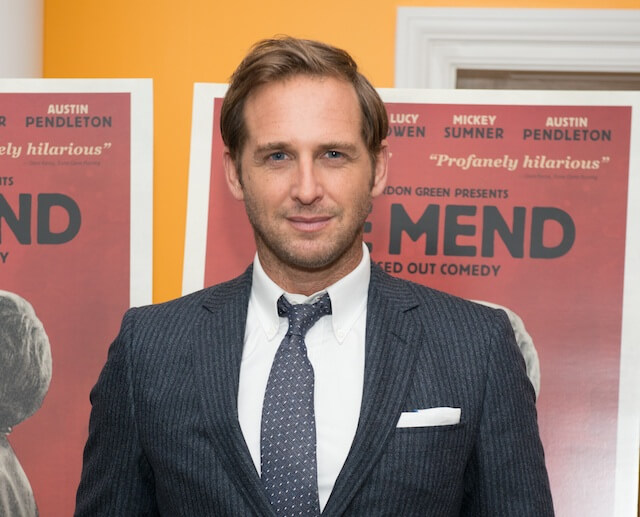Sometimes it’s more fun to play a character without worrying about how likeable he is. Josh Lucas does that — and then some — in “The Mend,” as a mess of a man, Mat, who moves into his estranged brother’s apartment and promptly destroys pretty much everything around him. And in the true spirit of independent filmmaking, “The Mend” was even shot in writer-director John Magary’s own apartment in Harlem — which led to some awkward moments on set. Why do you think this character is as damaged and dangerous as he is?
What I would say is this is a guy who is justifying having given up. He’s justifying, basically, his sort of anarchist idea about everything. It’s a guy who has lost, and he’s saying, “I lost because I don’t give a f—,” but the reality is they went hand-in-hand. He started to lose because he didn’t give a f—. It’s a kind of character and a kind of personality that, to be honest with you, more and more in my life I’m trying to stay away from thinking those thoughts. [Laughs] Because they lead to where he goes, which is basically homelessness. RELATED: “The Mend” is a thrilling, hilarious look at embracing one’s dark side That sense of unhinged-ness, while terrifying in real life, is great in a movie.
It’s a guy you don’t want to have dinner with, but it’s a guy you want to watch someone else have dinner with. [Laughs] It’s not like an animal, but you know it’s going to go wrong. It’s just when it’s going to go wrong is the question. Where did his guttural, throaty noises come from?
My sense is he’s sort of rotting from within. And look, I’ve known times in my life when I’ve drank too much, smoked too much, and this is a guy who’s always in a space where his insides are just … you don’t feel good. I think in a sense he’s constantly hungover. It’s not just that he is, even, but that feeling is there even when he’s not. What was it like shooting in the director’s own home?
There was actually one day I felt really bad because I got to set a little early — like five o’clock in the morning. And he and his poor girlfriend-slash-producing partner were literally still in bed in their bedroom, which was also my bedroom. They kind of came out like, “F—, man.” The exhaustion, it was humorous. There’s a smoothness to the cinematography in this you don’t normally see in smaller, indie films.
This is something I’m really frustrated by these days with filmmaking: Handheld [camera] is really f—ing lazy. It really is. And it’s often not necessarily hard to watch, but it’s just that we’re getting used to this lazy quality of filmmaking in that way. Maybe it’s not lazy, it’s just that people don’t have the time. You just can’t get it otherwise. But this was precise preparation. “This is this shot with this camera move,” and I feel it through the whole movie. It makes a big difference. Do you as an actor develop a kind of intuitive sense of the camera?
Oh yeah. I’ve worked with actors who are so good at it that they’ll literally say, “What lens is it?” And they don’t act out of the frame. It’s like the famous story of Brando working with his pants off. I mean, for real. I did a movie recently with Dustin Hoffman, and he’s phenomenal that way. Does that just come from experience, doing enough films?
I don’t know if it’s that. I think it’s a mix. There are certain actors who are very aware of that and very interested in it, and there are other actors who I think rightfully are not only unaware of it but absolutely uninterested in it, because there’s a level of purity to that, too. I think it’s a mixed bag.
Josh Lucas on going on a bender in ‘The Mend’

Getty Images
Follow Ned Ehrbar on Twitter @nedrick


















